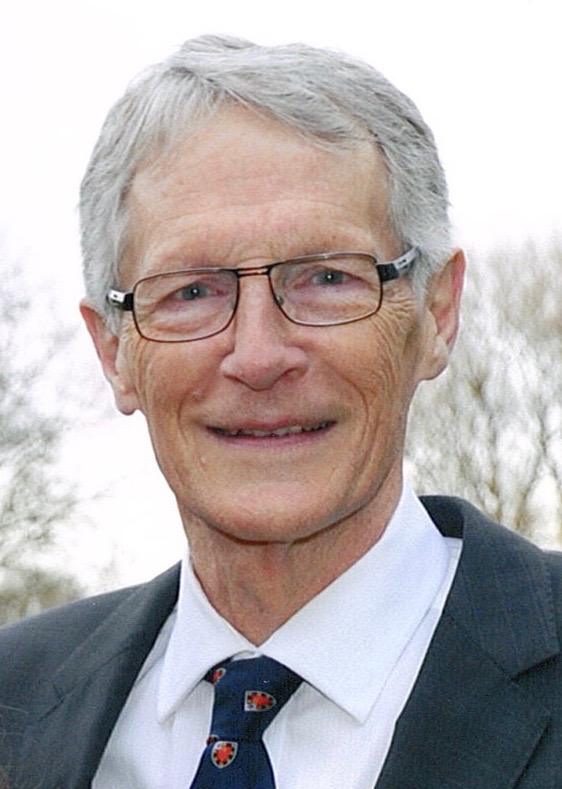About
I received a BA in English from UVic, an MA in Intellectual History from Sussex, and a PhD in English from Stanford (with two years spent as a post-grad research student at Oxford). My first job was at the University of Ottawa, whence I came to UBC and refused to leave—except for two extended periods of research supported by Germany’s Humboldt Foundation (in Bonn and Munich). At UBC I taught courses in science and literature and in what used to be called the Renaissance, with an emphasis on Milton. In the area of service, I survived (relatively unscarred) four years as Associate Head, three as Head, and three on UBC’s Board of Governors.
My research interests are reflected in the following lightly annotated list of some of my favorite books and articles.
Publications
Books
(authored)
- Milton’s Good God: A Study in Literary Theodicy. Cambridge and New York: Cambridge UP, 1982; paperback rpt. June 2009. xii + 292 pp. (For this work I was awarded the 1987 UBC Alumni Prize for research in the humanities.)
- The First Copernican: Georg Joachim Rheticus and the Rise of the Copernican Revolution. New York: Walker, 2006. 265 pp. (Japanese translation published Tokyo: Toyo Shorin, 2008. 336 pp.). Nominated for the 2010 triennial book prize of the Historical Astronomy Division (HAD) of the American Astronomical Society (AAS).
- Paradise Lost and the Cosmological Revolution. New York: Cambridge UP, 2014. (The book fuses my beloved interests in Milton and cosmology.)
- The Tao of Right and Wrong: Rediscovering Humanity’s Moral Foundations. Vancouver: Regent College Publishing, 2018.
(edited)
- The Cambridge Companion to Milton. Cambridge: Cambridge UP, 1989; rpt. 1992. Pp. xiv + 297 pp. Second edition: Cambridge: Cambridge UP, 1999. Pp. xvii + 299.
- Christes Bloodie Sweat (a 2000-line meditative poem by John Ford). In The Nondramatic Works of John Ford. Edited by L. E. Stock, G. D. Monsarrat, J. Kennedy, and D. Danielson. Binghamton, NY: MRTS and the Renaissance English Text Society, 1991.
- The Book of the Cosmos: Imagining the Universe from Heraclitus to Hawking. (Edited, with translations and commentary.) Cambridge, MA: Perseus Publishing, 2000. xxxvi + 554 pp. (Short-listed for the Canadian Science Writers Association “Science and Society” Book Award, 2000. Named to Amazon.com’s Editor’s Choice Top Ten Science Books for the year 2000.) Paperback edn New York: Basic Books, 2001.
- Paradise Lost, by John Milton: Parallel Prose Edition. Edited by D. Danielson. Vancouver: Regent College Publishing, 2008. 560 pp. (Reviewed by Stanley Fish in the New York Times and International Herald Tribune, 7 Dec. 2008.)
Articles
- “Timelessness, Foreknowledge, and Free Will.” Mind 86 (1977): 430‑32. (My first publication: very short, but in a premier journal of philosophy.)
- “Milton’s Arminianism and Paradise Lost.” Milton Studies 12 (1978): 47‑73.
- “Sidney, Greville, and the Metaphysics of ‘Naughtinesse.’” English Studies in Canada 10 (Sept. 1984): 265‑77.
- “The Logic of Pope’s Optimism.” Christianity and Literature 34, No. 3 (Spring 1985): 23‑36.
- “Catechism, The Pilgrim’s Progress, and the Pilgrim’s Progress.” Journal of English and Germanic Philology1 (Jan. 1995): 42-58.
- “Othello: Idolatry and the Telling of Stories.” Shakespeare in Southern Africa 9 (1996): 22-31 (appeared Spring 1998). The same article, slightly adapted, also appeared in Chinese translation in the Journal of Christian Culture and Literature, China People’s University, Beijing.
- “Scientist’s Birthright: How a new name embodied ideals of connection and inclusiveness.” Nature, vol. 410 (April 26, 2001).
- “The Great Copernican Cliché.” American Journal of Physics 10 (Oct. 2001): 1029-1035. (This article was and remains my most frequently read and cited piece of work.)
- “Achilles Gasser and the Birth of Copernicanism,” Journal for the History of Astronomy 4 (Nov. 2004): 457-474.
- “Rheticus and the Birth of Trigonometry.” Algorismus: Studien zur Geschichte der Mathematik und der Naturrwissenschaften. Edited by Menso Folkerts and Andreas Kühne. Augsburg: Rauner-Verlag, 2005. Pp. 127-142.
- “The Bones of Copernicus: Twenty-first-century cosmologists, historians and archaeologists continue to seek a true portrait of the great astronomer and his contribution.” American Scientist1 (Jan.-Feb. 2009): 50-57. Translated and republished as “Das Vermächtnis des Kopernikus.” Spektrum der Wissenschaft [German sister publication to Scientific American] (September 2009): 66-73.
- “Lewis as Intellectual Historian.” In The Cambridge Companion to C.S. Lewis. Edited by Robert MacSwain and Michael Ward. Cambridge: Cambridge UP, 2010. Pp. 43-57.
- “Ancestors of Apollo: How ten bold astronomers five centuries ago performed feats of imagination that prepared for the advent of human space flight 50 years ago.” American Scientist2 (March 2011): 136-143.
- “Early Modern ET, Reflexive Telescopics, and their Relevance Today.” In Astrobiology, History, and Society. Edited by Douglas Vakoch. New York: Springer, 2013. P 57-72.
- “‘Propter nos’ and Paradise Lost: Reading and inhabiting ‘this pendent world.’” In Transformations in Biblical Literary Traditions: Incarnation, Narrative, and Ethics. Edited by D.H. Williams and Phillip J. Donnelly. Notre Dame, IN: U of Notre Dame P., 2014. Pp. 42-59.
- “The Case Against Copernicus.” Co-authored with Christopher M. Graney. Scientific American1 (January 2014): 72-77. (English circulaiton 463,000.) Appeared in French as “Pourquoi ils n’ont pas cru Copernic?” Pour la Science 436 (Fevrier 2014): 74-77; and in German as “Kopernikus – Revolution mit Hindernissen,” Spektrum der Wissenschaft (Oktober 2014): 54-59. Also translated into Spanish, Italian, Polish, Japanese, Hebrew, and Arabic.
- “Milton and the Search for Meaning.” Special issue of Milton Studies2 (Fall 2020). Pp. 221-238. (This is my Miltonic swan song: partly autobiographical, and intended to bookend my earlier work on Milton and theodicy.)
Various encyclopedia articles in:
The Spenser Encyclopedia, The Dictionary of Biblical Tradition in English Literature, Encyclopedia of Literature and Science, The Biographical Encyclopedia of Astronomers, and Enzyklopädie der Neuzeit.
